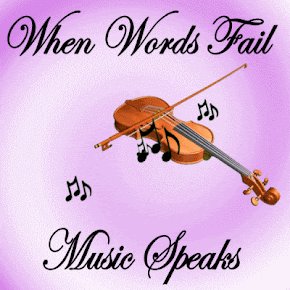When Words Fail
Looking back at the most recent years, HOW many times we witnessed When Words Fail. Ukraine. Gaza Strip and Palestine. YES, even the U.S. Capitol. And those spate of assassinations of leaders from the Hamas Hezbollah in Palestine. All of these tell us one thing. WORD FAILED, period. In the midst of tiffs that turn to squabbles and full-blown conflicts, we DON'T need to argue that WORDS FAIL. Ironically, the English language has 500,000 words while other major languages like French and German have 100,000 and 135,000 words respectively and YET, conflicts abound almost in every corner, even within households, within families, within the workplace and many communities. WHY???
At work, it's quite normal people spend most of their time talking. Like wrenches for the plumbers, words are our most frequently used tools of communication. BUT WORDS DON'T always do the job. Ironically, WORDS can do and trigger the opposite of WHAT we normally intend to and ironically, even without our intending it, WORDS can antagonize, inhibit, insult OR even threaten. WORDS carry risks we cannot assess accurately because we DON'T know WHAT meaning they happen to have for the person we address. Many a deal has been derailed because of somethings that was said. So, WHAT can we do WHEN that happens? Oooops, we are told: DON'T PANIC💦💦💦
Frankly, WHAT many of us would miss [in the heat of exchanges] is that WORDS are NOT the only means of communication. If words are failing you, we may be able to get through to people some other way. I can share my own travails in the past WHEN, in the heat of arguments, logic and reason seemed to have evaporated in thin air. NOT until my emotions simmered down and I got back to my senses💥💥💥
YES, I agree with this poster I grabbed. Even music speaks WHEN WORDS FAIL. The lesson to draw from all our close shaves with conflicts is that it is often difficult to achieve a major shift in the tone of a negotiation through WORDS alone. People listen to WORDS in a context and WHEN you're stuck in an impasse, it's usually the context you have to change. Physical actions, such as I've just described can do that. So, if you're stuck in a negotiation and nothing you can say seems to make a difference, endeavor to change tacks, change your framing😌😌😌
Our takeaway: I did this proven tack in the past. In the heat of arguments, I wrote on paper everything I wanted to blurt out and after finishing it, I slid the paper in a drawer. In a short while, I realized that my emotions [a.k.a. blood pressure huhuhu] did simmer down significantly. WHAT this tells us is that there are many more ways to communicate our intentions [call it arguments] than just WORDS. Like a good plumber, we need to know HOW to use all the tools in our toolbox. Despite the fact that the English language commands a huge reservoir of words, it is dumbfounding and too stretched to think that we're still running out of words. On the contrary, to play devil's advocate, I'll heap the blame back to our English forefathers because with that overflowing reservoir of WORDS, we ended up to be abusing the context of WORDS way beyond its relevance❌❌❌















